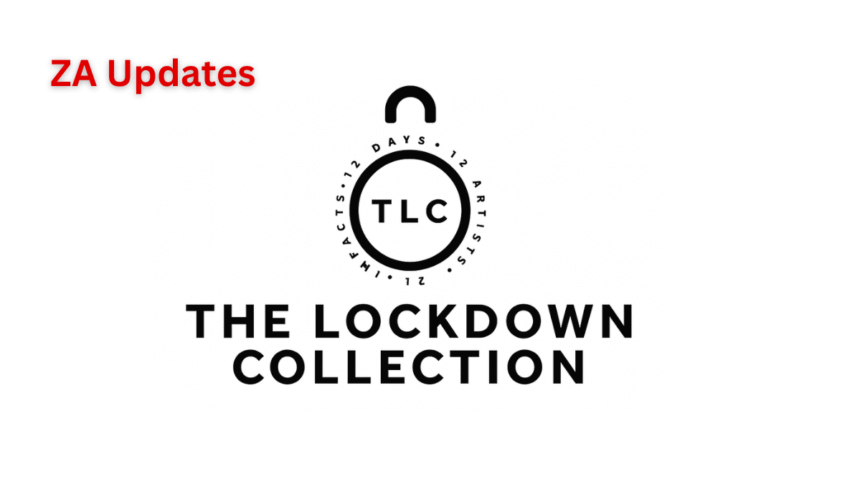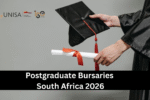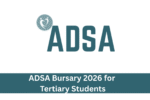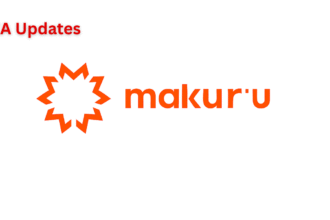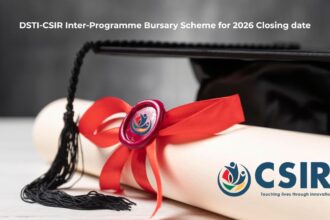The Lockdown Collection (TLC) Bursary South Africa For 2026. The COVID-19 pandemic reshaped countless industries around the world, and one of the hardest-hit sectors in South Africa was undoubtedly the arts. In response, a remarkable initiative emerged: The Lockdown Collection (TLC). What started as a creative reaction to unprecedented global circumstances has evolved into a powerful vehicle for nurturing talent and building a sustainable future for South African artists.
The Lockdown Collection (TLC)
The Lockdown Collection (TLC) was born during South Africa’s initial 21-day lockdown in 2020. As the country came to a standstill, so too did the livelihoods of many in the creative arts. Rather than watch helplessly, a group of visionaries decided to transform this crisis into an opportunity.
They invited South African artists to produce pieces reflecting their emotions, struggles, and hopes during lockdown. Each day, these artworks were shared on social media, creating an evolving, living narrative of the country’s experience. At the end of the initial lockdown, this curated body of work was sold through an online auction, generating funds to support the local arts community. Since then, TLC has remained active, consistently championing the cause of South African artists.
About the TLC Bursary Programme – Fields Covered and Bursary Value
Recognising that the next generation of talent needed tangible support, TLC introduced a bursary aimed specifically at students pursuing qualifications in Visual Arts. This initiative seeks to bridge the gap between talent and opportunity, ensuring that promising artists aren’t held back by financial constraints.
The bursary programme is delivered in partnership with the Artist Proof Studio and the Visual Arts Network of South Africa (VANSA). The programme was made possible through the generosity of globally acclaimed artist William Kentridge, who contributed by donating one of his artworks to help raise funds for the bursaries.
Each bursary is valued at R12,000 per student, a substantial contribution that can assist with tuition fees, art supplies, or other academic expenses.
Eligibility Requirements for the TLC Bursary
To ensure that the support reaches those most in need and most aligned with the programme’s goals, applicants must meet certain criteria.
Here’s a concise overview in table format for easier reference:
| Eligibility Requirement | Details |
|---|---|
| Citizenship | Must be a South African citizen OR a Foreign National studying in South Africa |
| Course of Study | Enrolled towards a Visual Arts qualification |
| Institution Type | Studying at a recognised university, college, or community arts programme |
| Financial Need | Must demonstrate financial need |
Failing to meet all the above requirements will result in the application not being considered.
How to Apply for the TLC Bursary
Applications for the TLC Bursary South Africa for 2026 must be completed online only. Any applications submitted via email, post, or hand-delivery will not be accepted.
Applicants are required to submit the following documents:
- Identification: A clear copy of your ID (if a South African citizen) or passport (if a Foreign National).
- Profile Photograph: Recent head-and-shoulders photo, professional and clear.
- Academic Results: Latest marks or transcript on your institution’s official letterhead.
- Proof of Registration: Document from your institution showing your registration or acceptance for a Visual Arts programme.
- Artwork Samples: Three images showcasing your best work.
- Proof of Fees: Official document stating the cost of your course fees.
- Banking Details: Either your personal bank details or those of your institution.
- Reference Letter: From an educator at your institution, endorsing your application and explaining why you need the bursary. This letter must include their contact details.
- Proof of Financial Need: Your last three months’ personal bank statements.
Important:
- All files must be clearly labelled with your name and a description, e.g. “Sipho L ID document” or “Sipho L Bank Statements.”
- Incomplete applications or improperly labelled files may lead to disqualification.
Notes to Remember About the TLC Bursary
- Submitting the application does not guarantee funding. Each application will be reviewed by a panel of adjudicators who will make the final selection.
- Applications must be submitted by the deadline, after which no further submissions will be accepted.
- The programme strongly advises applicants to double-check file labels and ensure all required documents are attached.
TLC Bursary Deadlines and Contact Details
Application Closing Date
The closing date for applications is typically announced annually. For previous cycles, applications closed on 31 July, with successful candidates notified by 16 August. Applicants should regularly check the official website for the 2025 dates to avoid missing deadlines.
How to Contact TLC for Queries
If you have any questions regarding your application or require further details, you can reach out directly through their official contact page:
- Contact portal: https://www.thelockdowncollection.com/contact-us
Why This Bursary Matters for South Africa’s Future
Supporting young artists isn’t just about fostering individual careers it’s about enriching South Africa’s cultural landscape. The pandemic exposed just how vulnerable the arts are to global disruptions. Through the Lockdown Collection (TLC) initiative, there’s now a proactive effort to ensure that creativity continues to thrive even in challenging times.
The bursary plays a pivotal role in:
- Developing local talent: By removing financial barriers, students can focus on honing their craft.
- Promoting cultural expression: The arts are crucial for telling South Africa’s stories and preserving diverse narratives.
- Boosting economic opportunities: The creative sector contributes significantly to employment and the economy.
Additional Tips for Applicants
To strengthen your application:
- Ensure your portfolio of artworks clearly demonstrates your unique style and progression.
- Keep your reference letter strong and personal ask an educator who knows your journey well.
- Be transparent in your financial documents. The panel needs to see your genuine need.
- Organise your application folder carefully, with clearly named files.
FAQs About The Lockdown Collection (TLC) Bursary South Africa
Who funds the TLC Bursary South Africa?
The bursary is primarily funded through donations from South African individuals, businesses, and artists. Notably, William Kentridge’s contribution by donating his artwork has been instrumental in generating funds that sustain this programme.
Can I apply if I’m doing a short course in Visual Arts?
It depends. The bursary generally supports students pursuing formal qualifications (like diplomas or degrees) at recognised institutions. If your short course is part of a recognised community arts programme, you might still qualify confirm this with TLC before applying.
How will I know if my application is successful?
Successful applicants are typically notified by the panel a few weeks after the closing date. Ensure your contact details are correct on your application so that you don’t miss important notifications.
Conclusion
The Lockdown Collection (TLC) Bursary South Africa for 2026 is a testament to how creativity, compassion, and community spirit can drive lasting change. If you’re a budding visual artist struggling with the financial demands of your studies, this bursary could be the breakthrough you need. Prepare thoroughly, meet all the requirements, and let your talent shine through your application.

